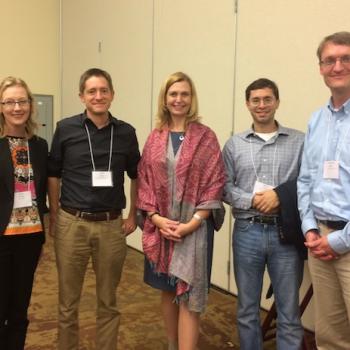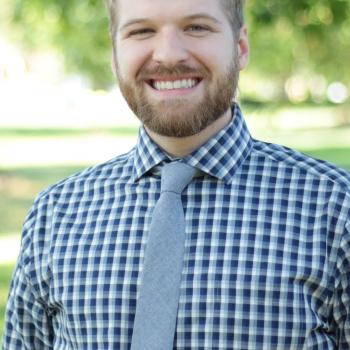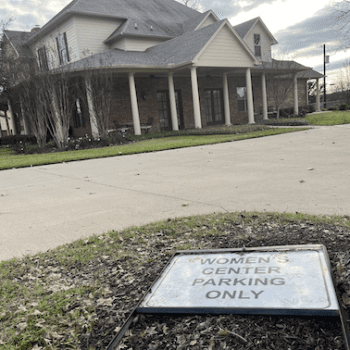I still remember the day I got the letter.
Five full years of support, including an additional first year award, for my top choice in history graduate school–The University of North Carolina at Chapel Hill. I ran so fast to my undergraduate professor’s office to tell him the good news, that I tripped and spilled my diet coke all over his door and carpet. A stain still marks my triumph, as the coke splashed on a picture made by one of his children and leaked paint-colored soda all over the floor.
6 1/2 years later I faced the job market. It wasn’t fun, but it wasn’t terrifying either. More than 800 jobs awaited the approximately 1000 history PhDs. I became a lecturer, then snagged a post-doctoral fellowship, then finally landed a tenure-track job.
For me, the cost of graduate school was reasonable. Yes, we were dirt poor for about 8 years. Yes, I didn’t sleep very much and spent a full semester before my comprehensive exams dreaming about questions in Latin that I couldn’t understand. Yes, I had to experience the very humbling experience of applying for many, many jobs and receiving very few interview invitations. Yes, we are now older parents because we chose to delay babies until I finished my PhD.
But still, almost 12 years after my degree, I am a happy tenured professor with a great family.
So everything worked out. For me.
What about for you? Is graduate school, especially in history, really worth it? According to the recent Survey of Earned Doctorates, more than 40,000 students earned a PhD last year, granted from one of the approximately 400 graduate institutions in the United States (see George Walker, et. al., The Formation of Scholars). Around 1,100 of these (according to the AHA, the American Historical Association) were new PhDs in history. Only 587 academic job openings awaited them.
I am a historian. Yet even for me this is easy math. There were almost 50% more PhDs than academic jobs available. When that is added to the backlog of graduates from last year (more than 400 PhDs than academic jobs available) and the year before, the number of academic job openings compared to the number of available PhDs becomes frightening. Especially when Robert Townsend and Julia Brookins state on the AHA website that: “The academic job market in history remains quite challenging for recent PhDs, and evidence…indicates that these challenges are likely to persist.”
So for those of you considering a PhD in history followed by an academic career, I have some advice.
1. Don’t do it unless this is truly your calling. If you cannot imagine yourself doing anything else, than apply. Otherwise, don’t bother. It isn’t worth it.
2. Don’t go unless you get full funding for at least 4 years (you really can’t afford to come out of the PhD with debt). Also, don’t go unless you are accepted into one of your top choices. Seriously. If neither of these things happen, then go work for a year, improve your c.v., and try again. But don’t settle for a 3rd, 4th, 5th choice, especially without sufficient funding.
3. If you don’t have an MA, get one first. An MA will help you decide if you really want the academic life. It will also provide evidence for PhD admission that you can complete an advanced academic degree.
4. Don’t go unless you really fit the program and really want to work with your advisor. Program fit and advisor relationship are two of the best indicators for graduate program success. Did you know that 50% of people who start PhDs never finish?You want to be at a program that really fits with the sort of scholar you want to become. You also want to work with an advisor interested in your success. Talk to current graduate students in the program. Talk to graduate faculty before you apply. Make sure this is the best program for you.
5. Finally, make sure you will work well with your intended advisor. My advisor was wonderful. She met with me weekly, encouraged me regularly, and connected me to a large network of scholars who still help me today. She was my advocate. Find an advisor who will be your advocate. This, almost more than anything else, will help you succeed in graduate school and in finding a job after.
Count the cost of graduate school before you apply. Otherwise you may find yourself paying more than you can really afford (and I am not just talking about money…).
Good luck with your decision! I will be offering some more advice about graduate school itself and expectations for graduate students. So stay tuned.
















